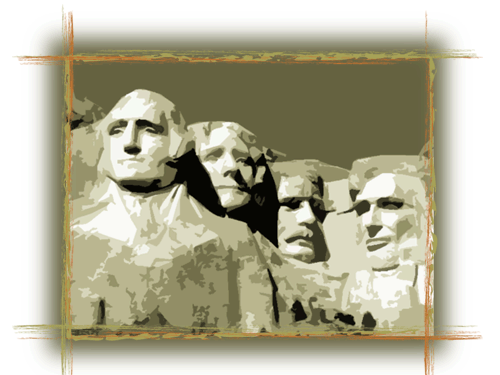平和宣言
私たちの故郷(ふるさと)には、温かい家族の暮らし、人情あふれる地域の絆、季節を彩る祭り、歴史に育まれた伝統文化や建物、子どもたちが遊ぶ川辺などがありました。1945年8月6日午前8時15分、その全てが一発の原子爆弾で破壊されました。きのこ雲の下には、抱き合う黒焦げの親子、無数の遺体が浮かぶ川、焼け崩れた建物。幾万という人々が炎に焼かれ、その年の暮れまでにかけがえのない14万もの命が奪われ、その中には朝鮮半島や、中国、東南アジアの人々、米軍の捕虜なども含まれていました。
辛うじて生き延びた人々も人生を大きく歪められ、深刻な心身の後遺症や差別・偏見に苦しめられてきました。生きるために盗みと喧嘩を繰り返した子どもたち、幼くして原爆孤児となり今も一人で暮らす男性、被爆が分かり離婚させられた女性など――苦しみは続いたのです。
「広島をまどうてくれ!」これは、故郷(ふるさと)や家族、そして身も心も元通りにしてほしいという被爆者の悲痛な叫びです。
広島県物産陳列館として開館し100年、被爆から70年。歴史の証人として、今も広島を見つめ続ける原爆ドームを前に、皆さんと共に、改めて原爆被害の実相を受け止め、被爆者の思いを噛みしめたいと思います。
しかし、世界には、いまだに1万5千発を超える核兵器が存在し、核保有国等の為政者は、自国中心的な考えに陥ったまま、核による威嚇にこだわる言動を繰り返しています。また、核戦争や核爆発に至りかねない数多くの事件や事故が明らかになり、テロリストによる使用も懸念されています。
核兵器が存在する限り、いつ誰が被爆者になるか分かりません。ひとたび発生した被害は国境を越え無差別に広がります。世界中の皆さん、被爆者の言葉とヒロシマの心をしっかり受け止め、自らの問題として真剣に考えてください。
当時16歳の女性は「家族、友人、隣人などの和を膨らませ、大きな和に育てていくことが世界平和につながる。思いやり、やさしさ、連帯。理屈ではなく体で感じなければならない。」と訴えます。当時12歳の男性は「戦争は大人も子どもも同じ悲惨を味わう。思いやり、いたわり、他人や自分を愛することが平和の原点だ。」と強調します。
辛く悲しい境遇の中で思い悩み、「憎しみ」や「拒絶」を乗り越え、紡ぎ出した悲痛なメッセージです。その心には、人類の未来を見据えた「人類愛」と「寛容」があります。
人間は、国籍や民族、宗教、言語などの違いを乗り越え、同じ地球に暮らし一度きりの人生を懸命に生きるのです。私たちは「共に生きる」ために、「非人道性の極み」、「絶対悪」である核兵器の廃絶を目指さなければなりません。そのための行動を始めるのは今です。既に若い人々による署名や投稿、行進など様々な取組も始まっています。共に大きなうねりを創りましょう。
被爆70年という節目の今年、被爆者の平均年齢は80歳を超えました。広島市は、被爆の実相を守り、世界中に広め、次世代に伝えるための取組を強化するとともに、加盟都市が6,700を超えた平和首長会議の会長として、2020年までの核兵器廃絶と核兵器禁止条約の交渉開始に向けた世界的な流れを加速させるために、強い決意を持って全力で取り組みます。
今、各国の為政者に求められているのは、「人類愛」と「寛容」を基にした国民の幸福の追求ではないでしょうか。為政者が顔を合わせ、対話を重ねることが核兵器廃絶への第一歩となります。そうして得られる信頼を基礎にした、武力に依存しない幅広い安全保障の仕組みを創り出していかなければなりません。その実現に忍耐強く取り組むことが重要であり、日本国憲法の平和主義が示す真の平和への道筋を世界へ広めることが求められます。
来年、日本の伊勢志摩で開催される主要国首脳会議、それに先立つ広島での外相会合は、核兵器廃絶に向けたメッセージを発信する絶好の機会です。オバマ大統領をはじめとする各国の為政者の皆さん、被爆地を訪れて、被爆者の思いを直接聴き、被爆の実相に触れてください。核兵器禁止条約を含む法的枠組みの議論を始めなければならないという確信につながるはずです。
日本政府には、核保有国と非核保有国の橋渡し役として、議論の開始を主導するよう期待するとともに、広島を議論と発信の場とすることを提案します。また、高齢となった被爆者をはじめ、今この時も放射線の影響に苦しんでいる多くの人々の苦悩に寄り添い、支援策を充実すること、とりわけ「黒い雨降雨地域」を拡大するよう強く求めます。
私たちは、原爆犠牲者の御霊に心から哀悼の誠を捧げるとともに、被爆者をはじめ先人が、これまで核兵器廃絶と広島の復興に生涯をかけ尽くしてきたことに感謝します。そして、世界の人々に対し、決意を新たに、共に核兵器廃絶と世界恒久平和の実現に向けて力を尽くすよう訴えます。
平成27年(2015年)8月6日
広島市長 松井 一實
PEACE DECLARATION
In our town, we had the warmth of family life, the deep human bonds of community, festivals heralding each season, traditional culture and buildings passed down through history, as well as riversides where children played. At 8:15 a.m., August 6, 1945, all of that was destroyed by a single atomic bomb. Below the mushroom cloud, a charred mother and child embraced, countless corpses floated in rivers, and buildings burned to the ground. Tens of thousands were burned in those flames. By year’s end, 140,000 irreplaceable lives had been taken, that number including Koreans, Chinese, Southeast Asians, and American prisoners of war.
Those who managed to survive, their lives grotesquely distorted, were left to suffer serious physical and emotional aftereffects compounded by discrimination and prejudice. Children stole or fought routinely to survive. A young boy rendered an A-bomb orphan still lives alone; a wife was divorced when her exposure was discovered. The suffering continues.
“Madotekure!” This is the heartbroken cry of hibakusha who want Hiroshima—their hometown, their families, their own minds and bodies—put back the way it was.
One hundred years after opening as the Hiroshima Prefectural Commercial Exhibition Hall and 70 years after the atomic bombing, the A-bomb Dome still watches over Hiroshima. In front of this witness to history, I want us all, once again, to face squarely what the A-bomb did and embrace fully the spirit of the hibakusha.
Meanwhile, our world still bristles with more than 15,000 nuclear weapons, and policymakers in the nuclear-armed states remain trapped in provincial thinking, repeating by word and deed their nuclear intimidation. We now know about the many incidents and accidents that have taken us to the brink of nuclear war or nuclear explosions. Today, we worry as well about nuclear terrorism.
As long as nuclear weapons exist, anyone could become a hibakusha at any time. If that happens, the damage will reach indiscriminately beyond national borders. People of the world, please listen carefully to the words of the hibakusha and, profoundly accepting the spirit of Hiroshima, contemplate the nuclear problem as your own.
A woman who was 16 at the time appeals, “Expanding ever wider the circle of harmony that includes your family, friends, and neighbors links directly to world peace. Empathy, kindness, solidarity—these are not just intellectual concepts; we have to feel them in our bones.” A man who was 12 emphasizes, “War means tragedy for adults and children alike. Empathy, caring, loving others and oneself—this is where peace comes from.”
These heartrending messages, forged in a cauldron of suffering and sorrow, transcend hatred and rejection. Their spirit is generosity and love for humanity; their focus is the future of humankind.
Human beings transcend differences of nationality, race, religion, and language to live out our one-time-only lives on the planet we share. To coexist we must abolish the absolute evil and ultimate inhumanity that is nuclear weapons. Now is the time to start taking action. Young people are already starting petition drives, posting messages, organizing marches and launching a variety of efforts. Let’s all work together to build an enormous ground swell.
In this milestone 70th year, the average hibakusha is now over 80 years old. The city of Hiroshima will work even harder to preserve the facts of the bombing, disseminate them to the world, and convey them to coming generations. At the same time, as president of Mayors for Peace, now with more than 6,700 member cities, Hiroshima will act with determination, doing everything in our power to accelerate the international trend toward negotiations for a nuclear weapons convention and abolition of nuclear weapons by 2020.
Is it not the policymakers’ proper role to pursue happiness for their own people based on generosity and love of humanity? Policymakers meeting tirelessly to talk—this is the first step toward nuclear weapons abolition. The next step is to create, through the trust thus won, broadly versatile security systems that do not depend on military might. Working with patience and perseverance to achieve those systems will be vital, and will require that we promote throughout the world the path to true peace revealed by the pacifism of the Japanese Constitution.
The summit meeting to be held in Japan’s Ise-Shima next year and the foreign ministers’ meeting to be held in Hiroshima prior to that summit are perfect opportunities to deliver a message about the abolition of nuclear weapons. President Obama and other policymakers, please come to the A-bombed cities, hear the hibakusha with your own ears, and encounter the reality of the atomic bombings. Surely, you will be impelled to start discussing a legal framework, including a nuclear weapons convention.
We call on the Japanese government, in its role as bridge between the nuclear- and non-nuclear-weapon states, to guide all states toward these discussions, and we offer Hiroshima as the venue for dialogue and outreach. In addition, we ask that greater compassion for our elderly hibakusha and the many others who now suffer the effects of radiation be expressed through stronger support measures. In particular, we demand expansion of the “black rain areas.”
Offering our heartfelt prayers for the peaceful repose of the A-bomb victims, we express as well our gratitude to the hibakusha and all our predecessors who worked so hard throughout their lives to rebuild Hiroshima and abolish nuclear weapons. Finally, we appeal to the people of the world: renew your determination. Let us work together with all our might for the abolition of nuclear weapons and the realization of lasting world peace.
August 6, 2015
MATSUI Kazumi
Mayor
The City of Hiroshima
《参照》http://www.city.hiroshima.lg.jp/www/contents/1110537278566/








